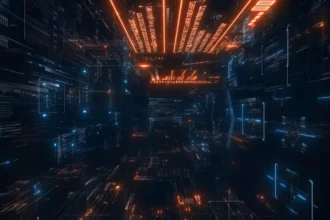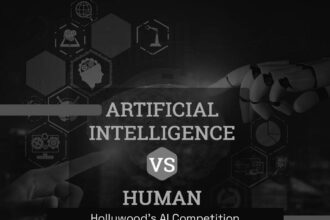For nearly 15 years, Mustafa Suleyman has been immersed in the world of artificial intelligence, witnessing its evolution from a fringe topic to a critical component of technological advancement. In the early days, discussions around AI seemed almost taboo, with many researchers shying away from the term altogether. Back in 2010, simply mentioning the idea of “artificial general intelligence” (AGI) would elicit bewildered reactions, leading many to regard it as a concept solely found in science fiction. How far we have come since then! Now, AI is outperforming humans in various tasks—from understanding images and translating languages to diagnosing diseases and playing complex games like chess and Go.
As AI’s capabilities expanded, so did public curiosity about its implications. Challenges and questions arose: Would AI help address the climate crisis? Could it lead to personalized education for all? What would universal basic income mean for our workforce? And, notably, could it pose risks in the form of misinformation or warfare? While these concerns are valid, Suleyman reflects on a more fundamental question that stumped him during an innocent conversation over breakfast with his six-year-old nephew, Caspian. Curious and imaginative, Caspian asked, “But Mustafa, what is an AI anyway?”
Suleyman found himself hesitating, wrestling with how to adequately describe AI to a child. The default explanations felt insufficient. He struggled to articulate how AI functions—merely as a sophisticated software that consumes vast amounts of text from the internet—feeling they fell short of properly conveying the essence and impact of what they were creating. Suleyman concluded that it was essential for those in technology to address this fundamental question of what AI truly represents.
Table of Contents
ToggleA New Digital Species
In contemplating this, Suleyman proposes a thought-provoking analogy: AI as a new digital species. While not to be taken literally, this metaphor serves as a lens through which we can examine the growing presence of AI in our lives. Just as life on Earth has evolved over billions of years, we are now on the brink of a significant leap in our technological narrative, with AI positioned as our new digital companions.
Reflecting on the vast history of human innovation—from stone tools to smartphones—Suleyman argues that our journeys with technology are inexorably intertwined. The advent of artificial intelligence represents a new wave of innovation that is not only rapid but also deeply consequential. Today’s AIs are capable of creating art, driving cars, managing energy, and initiating meaningful conversations—all in ways previously thought impossible.
The Future of AI
As the capabilities of AI continue to evolve, Suleyman envisions a future where everyone will have access to personalized AI companions. Imagine teachers and medical advisors available in the palm of your hand—AI could transform individual lives and entire industries. These digital entities will not just be assistants but robust partners, capable of aiding in complex tasks, decision-making, and even emotional support.
This shift compels us to reconsider our understanding of AI, moving beyond the traditional view of mere tools. Acknowledging the dynamic nature of AI is crucial; these systems are integrated and capable of autonomy to a certain degree, reminiscent of biological consciousness—but fundamentally different as they are birthed from lines of code rather than from organic material.
Ethical Considerations and Human Agency
Suleyman’s perspective on AI brings to light pressing ethical considerations. As creators of this technology, we must prioritize safety and human agency, consciously deciding what kinds of AIs we want to develop. It is imperative to address the risks associated with autonomy and self-improvement within these systems while remaining optimistic about the potential AI holds for humanity.
In discussions about AI’s potential, there lies a stark reminder of history; advancements often come with their share of downsides, whether during the exploration of new continents or the industrial revolution. However, Suleyman believes that we are in a unique position now. Rather than plundering resources, we have the chance to create a new frontier of technology—one that can empower and uplift humanity.
The Human Reflection in AI
As Suleyman articulates, AI should reflect the best of humanity: our creativity, curiosity, empathy, and kindness. This vision serves as both a challenge and an opportunity for the 21st century. As we build AI, we are tasked with ensuring that it embodies our values and aspirations. The importance of this task can’t be overstated; AI isn’t just a separate entity; it is in many ways, a reflection of ourselves.
In answering his nephew Caspian’s innocent question, Suleyman concludes, “AI is us. It’s all of us.” This profound realization encapsulates the essence of AI: it is a distillation of human knowledge, creativity, and ambition—a promising avenue we must navigate thoughtfully as we shape the future.
Finally, Suleyman powerfully reminds us that the journey of AI is still unfolding. While the technology offers tremendous promise, we must remain vigilant and proactive in defining the landscape in which it operates, ensuring it serves to amplify what is inherently human.





